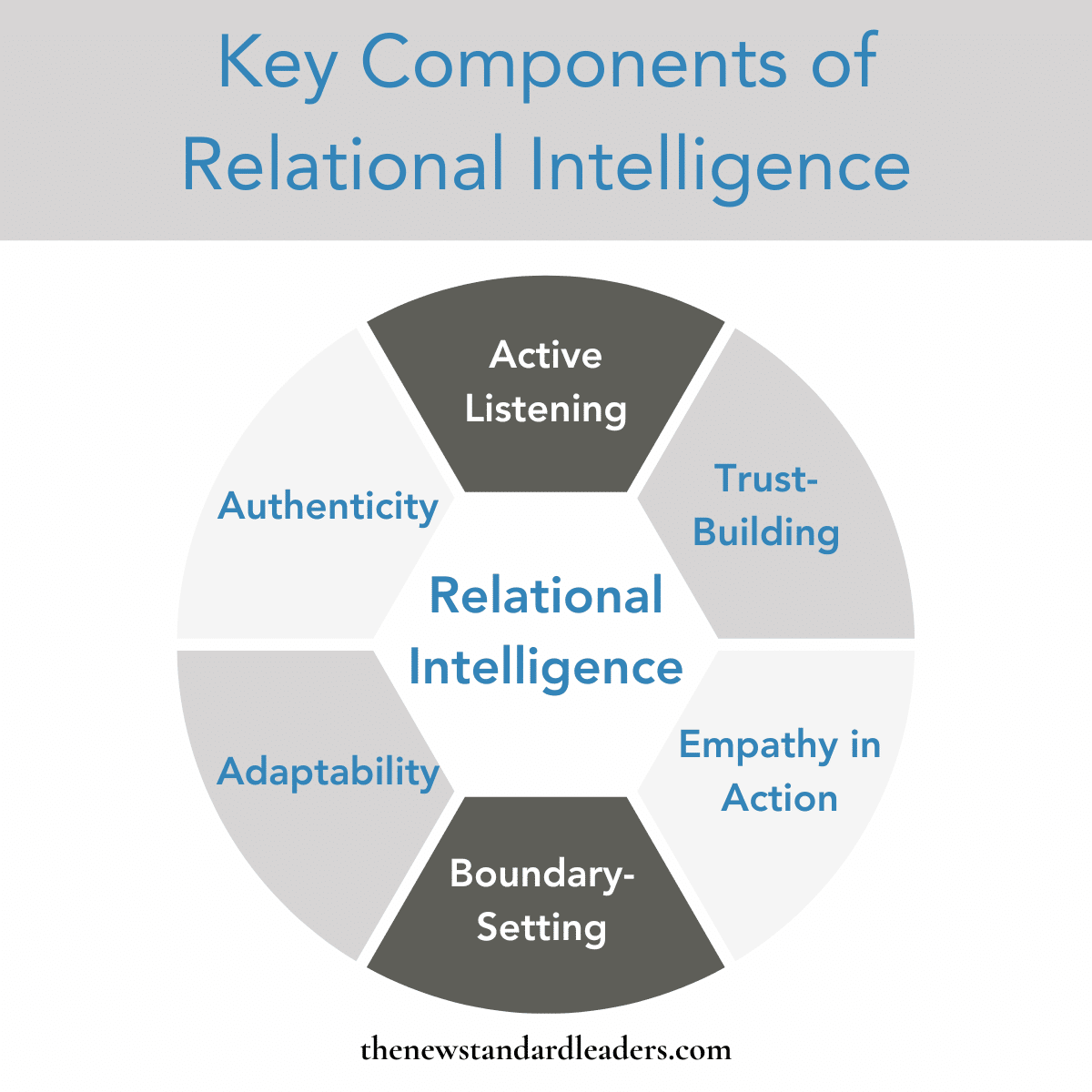When you think about what makes a leader successful, a few types of intelligence usually come to mind. IQ may have gotten you the job. EQ helped you connect with people. But Relational Intelligence (RQ) is what sets leaders apart. It’s the ability to turn everyday conversations into trust and influence that actually moves teams, and keeps them together when challenges hit.
AI is moving fast, and the gap between what executives think is happening and what people are actually doing is widening. McKinsey research shows nearly every employee is experimenting with generative AI tools, yet most leaders underestimate how deeply integrated these tools have already become. The real leadership question is not whether AI will be part of work. It already is. The real question is how leaders guide their teams through the uncertainty, fear, and opportunity it brings. Harvard Business Review calls this “AI-first leadership”: focusing less on adopting technology and more on how humans and AI work together.
Relational intelligence is what makes the difference. Algorithms can analyze, automate, and optimize, but they can’t sense unspoken tension in a room or create a moment of clarity when a team is wrestling with change. They can’t inspire people to rally behind a vision. Only leaders who show up relationally can do that.
What Is Relational Intelligence?
Relational intelligence is the skill of understanding, building, and sustaining trust-based relationships. Awareness and empathy are just the starting point; the real power comes from turning those insights into authentic connections that spark collaboration and loyalty.
Relationship expert Esther Perel calls strong relationships “the backbone of resilience.” She notes that our “relationship résumé” (the experiences that shape how we connect and communicate) follows us into the workplace. Leaders who pay attention to this, repair ruptures, and create safety in everyday interactions are the ones who foster teams that can adapt under pressure. In leadership, RQ is the muscle that transforms awareness into action.
Why Relational Intelligence Matters for Leaders
No leader succeeds alone. Influence comes from relationships. RQ allows leaders to:
- Build trust quickly in teams and organizations.
- Navigate conflict constructively instead of avoiding or escalating it.
- Foster collaboration and inclusion by valuing diverse perspectives.
- Inspire loyalty and buy-in in times of uncertainty or change.
With AI taking over routine tasks, leaders who can’t build strong human connections will quickly lose relevance. The leaders of the future aren’t the ones who know the most, but the ones who can relate the best.
Key Aspects of Relational Intelligence
Developing RQ means showing up in ways that turn everyday interactions into trust, collaboration, and influence. Here’s what relational intelligence looks like in practice for leaders, as well as actions you can take to strengthen each skill:
1. Active Listening
Be fully present in conversations. Listen not only to what’s being said but also to what’s unsaid—the pauses, tone, and emotions behind the words.
Try this: Before responding, summarize what you heard and ask, “Did I get that right?” to confirm understanding.
2. Trust-Building
Create psychological safety where people feel respected, valued, and free to speak up.
Try this: Admit mistakes openly and follow through on commitments. Small, consistent actions build credibility.
3. Empathy in Action
Move beyond awareness of others’ experiences to showing care through your choices and behavior.
Try this: When making decisions, pause to consider how they’ll affect the people involved, and communicate that you’ve done so.
4. Boundary-Setting
Balance being approachable with maintaining clarity on roles, expectations, and limits. Healthy boundaries prevent burnout, model self-respect, and create stability for your team.
Try this: Define what’s negotiable and what’s not, then communicate those limits clearly and respectfully.
5. Adaptability
Adjust your relational style to fit different people and contexts while maintaining core values.
Try this: Pay attention to what helps others feel heard and motivated, and flex your approach accordingly.
6. Authenticity
Lead with transparency and consistency so people know where you stand.
Try this: Share your reasoning behind decisions and let your values show in both your words and actions.
Relational Intelligence vs. Emotional Intelligence
Relational intelligence often gets confused with emotional intelligence, but the two are distinct.
| Emotional Intelligence (EQ) | Relational Intelligence (RQ) |
| Focuses on self-awareness and emotional regulation. | Focuses on building and sustaining trust-based relationships. |
| Helps leaders understand their own emotions and those of others. | Helps leaders use that awareness to create meaningful connections. |
| Centered on individual emotional skill. | Centered on mutual trust and influence between people. |
The two work hand-in-hand: EQ is the foundation, and RQ is the bridge that turns awareness into impact.
How Leaders Can Strengthen Their Relational Intelligence
Like any skill, RQ can be developed with intention. Leaders can strengthen it by:
- Seeking Feedback – ask colleagues how your leadership impacts them, and what you can do to enhance connection. Then act on what you learn.
- Practicing Presence – put away distractions and give people your full attention.
- Investing in Trust First – focus on relationships before results when building new teams.
- Communicating Transparently – be open about decisions and the reasoning behind them.
- Stretching with Authenticity – let others know when you’re trying new behaviors and invite feedback.
These are leadership essentials that determine whether influence takes root or fizzles out.
The Future of Work: Why RQ Is a Leadership Imperative
Work today is faster, more chaotic, and more unpredictable than ever, and AI is changing what it means to lead. What we notice at The New Standard is that the leaders who thrive aren’t necessarily the ones with the sharpest technical skills. The ones taking leadership to the next level are those who show up relationally, notice what others need, and make connection a daily practice. They build teams that adapt, collaborate, and even innovate under pressure.
IQ may open the door. EQ may help you connect. But RQ is what determines whether you leave a legacy people remember, and whether your leadership shapes a future where humans, not algorithms, define success.
Ready to Strengthen Connection Across Your Teams?
FAQ: Relational Intelligence
Q: How is relational intelligence different from emotional intelligence?
A: EQ focuses on self-awareness and understanding emotions, while RQ is about turning that awareness into authentic, trust-based relationships that drive influence and collaboration.
Q: Can relational intelligence be developed?
A: Absolutely. Like any leadership skill, RQ grows with intention through feedback, practicing presence, transparent communication, and consistently showing up relationally.
Q: Why does RQ matter more with AI in the workplace?
A: As AI handles routine tasks, the human element becomes the competitive advantage. Leaders who can read the room, foster trust, and guide teams through uncertainty will stand out.
Q: How do I know if I’m strong in RQ?
A: Look at your impact on others: Are your teams engaged, aligned, and motivated? Do people trust you and collaborate effectively? If not, RQ may be an area to focus on.
Q: Where can I learn more about strengthening RQ?
A: The New Standard offers leadership programs, leadership workshops, executive coaching, and resources to help leaders strengthen relational intelligence and apply it in real-world scenarios.
Enjoyed this post? You might also like…





